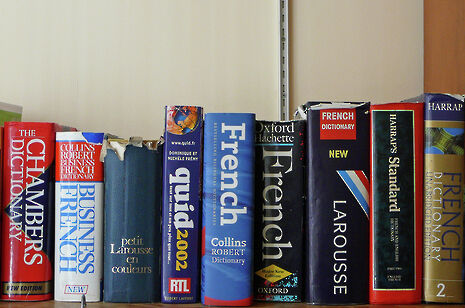Not in my back jardin: resistance to French spelling reform reveals an ugly past
On the transformation of the humble onion – a critical look at the pressures of modernity on the French language

In response to the lowest scores recorded in 26 years for la dictée — a sort of obligatory spelling test for college students — the Socialist government in France announced earlier this year the implementation a controversial spelling reform that will accompany the National Education program for the 2016-17 academic year.
More than 2,400 words will be simplified in a move that has incurred the wrath of purists, such as the transformation of the humble onion from oignon to ognon and the removal of the circumflex (as in bête) from most words. Whilst the modifications were unanimously agreed by the traditionalist Académie Française back in 1990, most people turned a blind eye in virtue of its optional nature. It was only when the French TV channel TF1 revealed its new obligatory status that verbal disapproval began to target Hollande’s beleaguered cabinet, accused of “removing the problem rather than finding solutions” by Bruno Dewaele, the current world spelling champion.
Evidently, a national language that has fiercely resisted evolution in recent centuries comes with a lot of pride. However, it should be remembered that back in Molière’s day, linguistic conservation was a principle very much founded on aristocratic snobbery: 'proper French' was a necessary pre-requisite to the upper echelons of society. The use of language was socially policed to such an extent that any words that had even the slightest provincial whiff to them — such as the verb partir in the context of “to come from”, for example — sufficed to make a pariah of many a regional upstart.
One of the founding members of the Académie Française, Charles Favre de Vaugelas, established a written code that any writer with serious literary pretensions was obliged to follow — a haughty diatribe named 'Remarks on the French language, useful for those who want to speak and write well'. It is exactly this climate of disdain for new vocabulary that has starved French of the range of expressions available to a contemporary speaker of Italian, or English, whose lexicon is six times the size of French. Therefore, there may be a darker side to the resistance towards any modifications to the French language, no matter how slight.
After all, the Académie Française as an organisation is almost as traditional as the French language itself. The tight circle of 40 members, informally known as les immortels, meet in green gowns that make this association resemble at times more an elitist Oxbridge society than an official body in charge of a language spoken by almost 76 million people in France alone.
Surely a council bearing the motto ‘To Immortality’ (A l’immortalité) should be more open to reforms that may help achieve their aim? Or is it the French of the 17th century that they seek to immortalise? Indeed, by declaring themselves “in opposition to any spelling reform”, the Académie reflects the tendency of certain sectors of French society to view their own language with nostalgia, despite the nature of languages being to evolve to reflect the cultural characteristics of its speakers.
However, the Académie — who elected their first woman in 1980, 350 years after its creation — is not alone in its resistance to change. A series of laws have been passed in the late 20th century with the aim of maintaining the purity of the French language, almost to the point of farce. The Bas-Lauriol Law of 1975 made the use of French obligatory in a range of official circumstances, notably in advertising and in the recruitment of staff. Theoretically, those who flouted this law were liable to serve a jail sentence — all in the name of language.
The reaction outside France of such authoritarian measures however was one of derision, with the New York Times expressing with astonishment: “We are on the brink of World War Three and the French cannot find anything better to do than to argue over the spelling of a word!” Appreciating cultural heritage is one thing, but it is well worth considering the darker implications of the past.
Let’s take our hats off to those who embrace the removal of the circumflex.
 News / Colleges charge different rents for the same Castle Street accommodation2 March 2026
News / Colleges charge different rents for the same Castle Street accommodation2 March 2026 News / News in Brief: waterworks, wine woes, and workplace wins 1 March 2026
News / News in Brief: waterworks, wine woes, and workplace wins 1 March 2026 News / Climate activists protest for ‘ethical careers policy’1 March 2026
News / Climate activists protest for ‘ethical careers policy’1 March 2026 News / Angela Merkel among Cambridge honorary degree nominees27 February 2026
News / Angela Merkel among Cambridge honorary degree nominees27 February 2026 News / Private school teacher who lied about Cambridge degree barred from teaching27 February 2026
News / Private school teacher who lied about Cambridge degree barred from teaching27 February 2026








